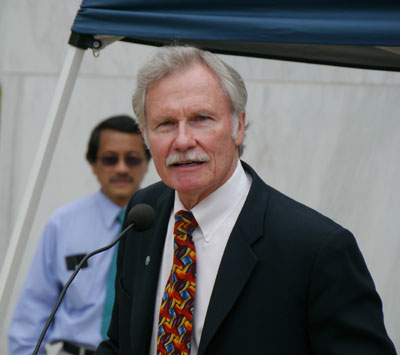
Community College Reform Focuses on Student Performance
As part of a sweeping educational reform package, Governor Kitzhaber is proposing changes in the Oregon educational system that could take effect as soon as the start of the 2012-13 school year. If lawmakers approve the changes, one result would be that all Oregon schools will be required to sign educational achievement compacts.
These achievement compacts would be partnership agreements between the state and educational institutions. They would define and set key measurements of student performance and establish targets for future educational goals.
If passed, every school district and community college would be required to write and sign an annual achievement compact and have it on file with the state by June. A sample of an achievement compact can be accessed online at www.oregon.gov/Gov/OEIB/Docs/PFDraftMergedCompacts.pdf
During the first year (2012-13 school years) the agreements will be used primarily for information gathering purposes and will serve as the baseline for determining future educational goals. Thereafter, they will be used to develop specific targets for the upcoming year.
The information collected could also be used for determining the best use of funding resources. “The achievement compacts will begin to connect funding to outcomes so that the state can become, over-time, a smarter ‘investor’ in education,” said Kitzhaber in his State of the State Address on Jan 13 accessed online from the Governor’s website.
The oversight board for monitoring each school’s progress would be the Oregon Education Investment Board. The OEIB is a permanent part of the Governor’s reforms efforts and has already been put in place. The governor announced his nominations better coordination within the public education system as a whole. To establish greater accountability for these changes, the Governor has been named Superintendent of Public Instruction (SB 552).
The Governor is seeking reform at this time, in part, to release Oregon from the federally mandated No Child Left Behind act that was enacted a decade ago. For the first time, the Obama administration is allowing states to apply for a waiver from NCLB.
The waiver is possible only “if we can create a homegrown alternative that provides smart accountability and better paths to student success”, said Kitzhaber in the January State of the State Address. “The achievement compacts are essential to obtaining the waiver,” he added. Currently, the waiver is in draft form awaiting details, but must be submitted for final approval to the federal government by Feb.
21.
This legislation is also important to meeting the governor’s stated goal of 100 percent high school graduation rates by 2025. It is called the 40-40-20 plan which means 100 percent of students would finish high school, with 80 percent of those graduates receiving at least two-years post-secondary education or training and 40 percent earning a bachelor’s degree or higher.
For more information on achievement compacts, call 503-378-0206.
| The Mainstream is a student publication of Umpqua Community College. | About us | Advertising | Archives |
